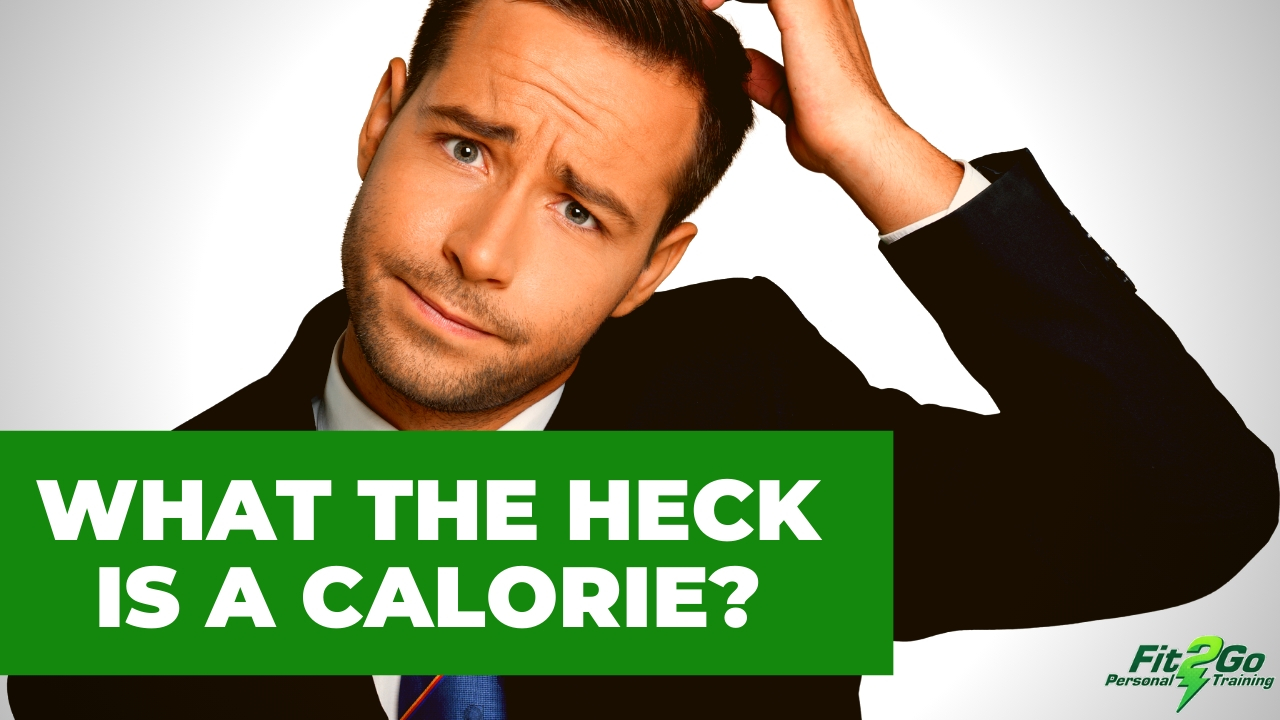
21 Feb What the Heck is a Calorie?
Let’s get right to it.
A calorie is a unit of energy.
Calories are used to measure energy, just like inches are used to measure length.
To fully grasp this, let’s pretend it’s our job — you and me — to come up with a way to measure energy.
Not such a simple task, eh? How can we measure energy?
It’s a tricky assignment. Here’s why:
In order to measure energy, we need to establish a standard unit. Just like length has the inch and time has the minute — we need a standard unit of measurement for energy.
But again… how can we measure energy? How can we measure something that we can’t see, touch, or hold?
After many sleepless nights and 8,000 doses of caffeine, we finally have a breakthrough.
We figure out how we’ll establish our standard unit of energy! Woohoo! Shots on me!
So what’s our breakthrough?
We can’t measure the energy by focusing on the energy itself. We must measure energy by observing what it can do!
After all, that’s what energy IS, right? Energy is the capacity for doing things!
At this point, we’re both a disheveled mess and we’ve turned the room upside down in excitement. But we finally know how to move forward.
We need to find a process that requires a set amount of energy to complete. It doesn’t matter what the process is or how much energy it uses. All that matters is that we find a process that uses the same amount of energy, every time.
You still with me?
Let me put it another way:
We’re going to choose a process — like heating 1g of water by 1 degree celsius — and however much energy that takes, that amount will be our unit of measurement.
This works, because heating 1g of water by 1 degree celsius always requires the same amount of energy.
So, we accept this as our unit of measurement and we give it a name:
A “calorie”.
Hence:
1 calorie = (amount of energy needed to heat 1g of water by 1 degree celsius)
(Note: if you want to get technical… a dietary calorie is actually one thousand calories, or 1 kcal. But you don’t have to worry about that.)
So there you have it. Now we know what a calorie is.
This allows us to clarify a few crucial points about calories…
Calories don’t actually exist.
A calorie isn’t a physical thing in the world. You can’t hold a calorie and you can’t see one either. Because the calorie is just something we made up as humans. A calorie is just a word that refers to a certain amount of energy.
Understanding this allows us to avoid some dangerous pitfalls. For example, you might not think twice about the soda, juice, or milk you’re consuming because it doesn’t feel like you’re consuming a lot of food, so it doesn’t feel like you’re consuming a lot of calories.
However, once you understand that calories have nothing to do with bulk, texture, size or anything of the sort, it’s easier to see why you may be consuming more calories (a.k.a. energy) from drinks than you are from your actual meals.
Good vs. Bad Calories?
This is one the most ridiculous assertions — the idea that a calorie can be either “good” or “bad”.
There are no good or bad calories. Just like there are no good or bad inches.
A calorie is simply an amount of energy. Nothing more, nothing less.
When it comes to weight loss, your body doesn’t judge. One hundred calories is one hundred calories, whether they come from table sugar or organic quinoa — they provide the same amount of energy and therefore will have the same affect on your weight.
This is hard for people to accept, as we’ve been taught to have such an absurdly moral view of food, labeling some as “good” and others as “bad”. But your body doesn’t know or care about any of this nonsense.
When it comes to weight loss, all your body knows is how much energy you’re putting in, and how much you’re putting out.
Does this mean I shouldn’t get my calories from healthy foods?
No — you absolutely should! 1500 calories of healthy food will provide many benefits over 1500 calories of unhealthy food. Just don’t expect this to make any difference on your weight. Weight loss comes from an energy deficit, not from how healthy your food is.
Are you saying that 300 calories from a big mac won’t make me fatter than 300 calories from grilled chicken?
That’s exactly what I’m saying. I’m not advocating eating big macs. You’ll feel like crap and encourage all sorts of health issues.
But essentially, this question is no different than asking, “What weighs more, a pound of brick or a pound of feathers?”
If it’s the total number that matters — as is the case with calories and weight loss — then the question is clearly silly.
Stay busy. Stay fit.
-Coach Dani



